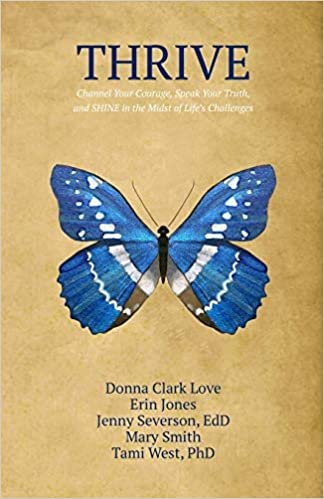How do I work with my personality?
Dear EQuipped Leaders,
Have you taken the EASEL with us and found out where you land in the Big 5 categories of personality? If not, shirk all other responsibilities for a few minutes, and shoot us an email, so we can set you up.
If you have already taken it, I want you to pick an area where you either had a very high or low score or an area you know you want to work on growing.
Where is an area you want to grow your self awareness this year?
O (Openness to New Experience)
C (Conscientiousness)
E (Extroversion)
A (Agreeableness)
N (Neuroticism)
One of the biggest lessons I've learned around personality is how to work with who I already am as opposed to trying to be someone I’m not. Changing my personality is not going to happen. Being more aware of the ways in which I shine and the ways in which I struggle, can totally happen! It’s also all I really need in order to grow my emotional intelligence.
When you know yourself and your personality well, you can set yourself up for success by sharing that awareness with your students and colleagues.
For example, I work with an elementary school principal who is exceptionally self-aware and emotionally intelligent. She and her faculty took the EASEL several years ago and have been implementing the EQuipped classroom curriculum with their students, and continuing EQuipped classroom trainings with teachers really thoughtfully for the past four years. When I was setting up time to do an EQuipped classroom refresher training with her teachers virtually last January, she made the most self-aware comment about herself:
“Now listen, Elizabeth, I’m low conscientiousness, so that means you are going to have to email me a few times to remind me to schedule our next PD training. I always want to work with y’all, but I won’t always get back to your emails right away, so please keep trying.”
This was brilliant. Instead of trying to be someone she’s not, she was just really honest about how she communicates and told me that straightaway. That way, I knew I wasn’t bugging her when I reached out a few times before she responded. It was incredibly clear and kind to both of us. She was honoring her personality and letting me know what I needed to know in order to work with her effectively.
I emailed her several, friendly reminders and didn’t mind at all that it took her awhile to get back to me. Now we’re going to do a whole virtual book club with her faculty over The EQ Intervention, and I’m so looking forward to working with her more. However, if she hadn’t been so self-aware, I may have stopped trying to reach her after that first email and missed the opportunity to connect and build something great together.
I think when it comes to personality, thinking “I should be this way” or “I shouldn’t be this way” gets us into trouble. When I can accept and honor my true nature and communicate effectively how I work best, I’m being much kinder to myself and others. I’m also being way more realistic.
A powerful way to model this at the start of the school year is to share a blindspot in your personality with your students. Just like that principal shared with me about her low conscientiousness, I would share with my students about my high conscientiousness. I know I can turn into a worker robot and forget to let us all be humans sometimes, so I would tell them that upfront at the start of the school year. Instead of trying to be someone I’m not or worrying about whether I was failing my students because of this personality blindspot, I just owned it and told them from the start how to call me out on it in a respectful way. It saved us all so much unnecessary conflict.
Where does this land for you?
Which area of personality are your biggest blindspots? Which area causes the most conflict or misunderstandings with others?
What is one aspect of your personality that you can more fully own and communicate to your colleagues or students?
What will students learn if we model how to work with our personalities instead of pretending we don’t have our own struggles?
Better EQuipped Together, Elizabeth elizabeth@appliedeqgroup.com
Elizabeth graduated with a B.A. and M.A. in English from the University of Central Arkansas. She taught English for a decade and got to read and write alongside kids in 7th, 8th, 10th, 11th, and 12th grade. The Applied EQ Group played an important role in her own personal EQ Intervention, and she is grateful to be able to spread the love and EQuip, empower, and encourage others. :)
Want to EQuip your school?
Connect with us through email or Schedule a free call with Jenny, our Director of School Partnerships, to discuss your school’s needs and if we’re a good fit for your campus.
Want to EQuip your library?
This post contains affiliate links. See full disclosure below.






